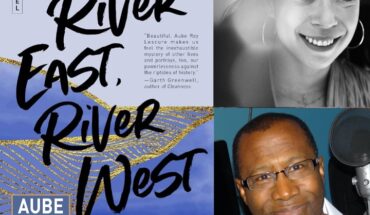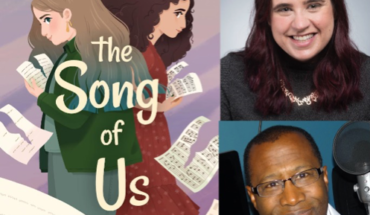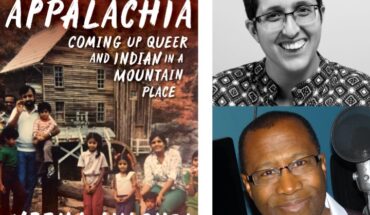Abuse kind of fucks up your head. Anybody who’s been there will tell you that. And while we survivors can respond to the injustices done upon us in a myriad of ways, I’ve noticed a significant ratio of us seem to become writers.
I won’t try to guess why this is the case for others, but I myself started writing as a form of escapism; to leave behind a world that was so cruel to me that I’d crack if I stopped moving long enough to take notice. A cheap, mobile, easy-to-hide way of putting salve on burns that kept appearing. Writing helped me keep my sanity when I couldn’t sleep. My characters became my imaginary friends when I had nobody else to talk to. In this first phase, my writing was comfort.
Then I grew bolder, realizing that writing was a place where I was in control, where I could wield whatever I wanted at any time without hurting anybody in the real world. It was a way for me to get into my own fucked-up head without looking directly at the sun. I could give my protagonists woes while still guiding them toward resilience. I worked to make my antagonists complex, to understand why they did what they did without bestowing them a drop of excuse. It was cathartic.
But now I’ve entered a scary third phase, where after seven feverish novels in 8 years, I’ve apparently stumbled upon something agents scoot closer to my chair for. And like a child at test time, I want to slap my body down upon my papers in defense.
It’s taken me a while to figure out why, after all the hope I’ve carried of maybe one day being a published novelist, that my instinct would be to run in the other direction the closer I get to that goal. But after some self-reflection and ongoing talks with others in the mix, I’ve noticed a pattern of at least four struggles abuse survivors have as writers.
1. Believing You’re Not Good Enough to Be a “Real” Writer
This one’s easy to figure. You don’t think you’re good enough because you’ve received the message, either physically or verbally, that you’re indeed not good enough. That’s, you know, kind of the figurehead of abuse: Get the survivor so convinced they’re subhuman that they’ll do whatever the abuser wants. That’s a lot to untangle once a survivor breaks away. And in the world of writing, even if you used your craft as a survival mechanism, you may nonetheless be convinced that you’re not actually a good writer. You wish you could be a good one, but damn, if you only you didn’t suck so hard. Writers, whether survivors or not, get caught up in this belief that “good” writing and “real” writers are innate, as if you’re either born with The Gift or you’re not.
I can tell you with complete and utter confidence that this is bunk. You know those seven novels I mentioned earlier? Six of them are terrible. Number seven was a game-changer not because I magically got better, but because I finally learned the nitty-gritty breakdown of rules that novels are made from to look effortless.
There’s no gift to writing. They’re only rules and the hard work dedicated to bending those rules to your will. Anybody who knows writing will tell you that it’s one of the hardest things you’ll ever do. Sadly, some folks will become overwhelmed and abandon their projects. But you? You know how to get through shit. When it comes to tireless dedication—the pinnacle of a novel getting published—you got this. You got this because you’ve been through way worse, you know how to put your head down and push. You pretty much invented it.
2. Responding to the Editing Process as an Abusive Relationship
As survivors, we’re familiar with never being good enough, no matter how hard we try to please an abuser. That’s, again, kind of the point of abuse. And it sucks. It can be difficult to get past the eagerness to please others once we get out of an abusive situation because, depending on how our lives roll, we may never encounter a non-toxic opportunity to do so.
In writing world, the desire to please others can be triggered by the constant and seemingly unending editorial process. Writing groups, feedback from agents, constructive criticism from friends; it’s a long list. A manuscript simply can’t become a novel unless it’s drowning in opinions from others and revisions from you. The issue becomes figuring out how to not drown along with it. It can be easy to fall back into the pull of being a yes-man to every suggestion given to you. Or, more painfully, “Will you love me once I do this for you?”
First off, stop a moment. This is your book, it will always be your book, and nobody is allowed to take that away from you. A good agent or editor will make that fact stronger, not try to turn your book into something they want to see. That’s not how this game works. And if an agent tries to do that to you, they’re a bad agent. Tell everyone.
Second, it’s reasonable to reject any constructive criticism or editorial suggestion that 1) goes against the core of your book, 2) removes the “you” of your book, or 3) isn’t clear or convincing as to why it could make your book stronger. You also have the right to give things a go and, if they don’t appear to improve the book, return to a previous draft.
3. Equating Your Book’s Slights to Your Self Worth
When you get yourself to a place where you’re ready to query agents or publishers or whathaveyou, you may find that every slight feels like a personal attack. Every rejection, every constructive criticism, every 1-star review on Amazon. These situations can sting for anybody, but survivors seem to take this a little more personally. It’s true that there’s a piece of a given writer in each of their books, that their books are their babies, but there’s a big difference between, “I’m hurt that this person said a mean thing,” and, “My book is shit and I’m shit and I deserve to die.”
The devastation mindset is a toxic place to be. There’s an odd comfort in the familiar, that spiral, and so it can be a hard habit to break, especially for those of us who used writing as a lifeline during the worst times: “If my novel isn’t 100% successful and praised, then that means I’m not a good writer. If I’m not a good writer, then that means all the writing I did while I was abused was worthless. If all the writing I did while I was abused was worthless, then that means I’m worthless. If I’m worthless, then that means I deserved to be abused.”
Holy shit, back up. Can you imagine any person other than yourself saying this and you agreeing with them? You’d probably be first in line trying to find them a hypoallergenic puppy to pet.
The fact is that writers don’t write so they can be universally loved. It’s a hope and dream, sure, but it’s not what actually motivates any of us, including you. We write because we want to, because we’re possessed to, because we want to create something out of thin air for the world to enjoy.
And if some people choose not to enjoy it, that’s on them. Not every book is going to please every person. But for some, your book will mean the world.
If you don’t believe me, ask J.K. Rowling. Not even she has obtained universal love for her work, but does that make any of us who love her to love her less?
4. Imposter Syndrome and Your Book’s Success
And yet, even if your book does do well—if you get an agent or a publisher or good sales—we dear survivors still aren’t happy. Still so convinced that we’re trash, we assume positive reactions to our book just means the praising folks are confused. I felt like a half-assed Groucho Marx the day someone raved about my manuscript and I replied sans filter with, “Wow. And here I thought you had good taste.”
We never want to join any club that would have us as a member. In the end, this is nothing more than Imposter Syndrome, which I encourage you to look into if you’re not familiar with it. There are tons of people—many of them millennials—who are convinced they’re just faking their way through life, undeserving of accolades and good jobs and success, and that one day they’ll get called on it, shamed, and somehow die poor and alone. This sort of worry feeds itself off the lone genius concept of a good writer. Just because someone praises you doesn’t mean it’s because they’ve confused you with someone who has a natural gift for writing, and that that’s the only reason they’re praising you. They may think you have a natural gift, and you’d be right in concluding that they’re wrong, but that doesn’t mean you’re a bad writer. Because again, none of us has that gift. The irony of an effortless-seeming novel is that it got there through innumerable hours of hard work not just by you, but by a whole team of literary experts.
Remember there’s no magic in writing. There’s only magic in reading. Because all your reader sees is the final product. A reader praises you because they liked your product, not because they liked your product and also thought you shat it out yesterday.
The logic is simple: If you’ve gotten to a place where people are seeing your craft, then that means you’ve put in a lot of hard work. And since you’ve put in a lot of hard work, you deserve the praise readers bestow upon you. I know it feels weird because we as survivors tend to not know what to do with these foreign positive words, but they’re yours and you earned them. It’ll get easier to accept them over time.
In the end, we survivors are a resilient bunch. We’d have to be, going to hell and back like we have. And so in a world as tough as writing, what better group of people could be had for taking the knocks and making it out the other side? For somehow producing something beautiful along the way?
The craft of writing is the craft of resilience. And we’ve got that in spades.



